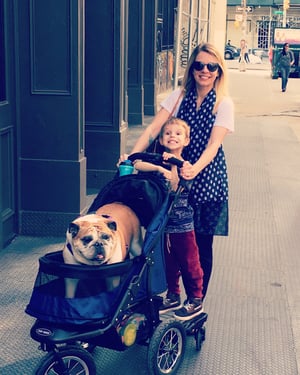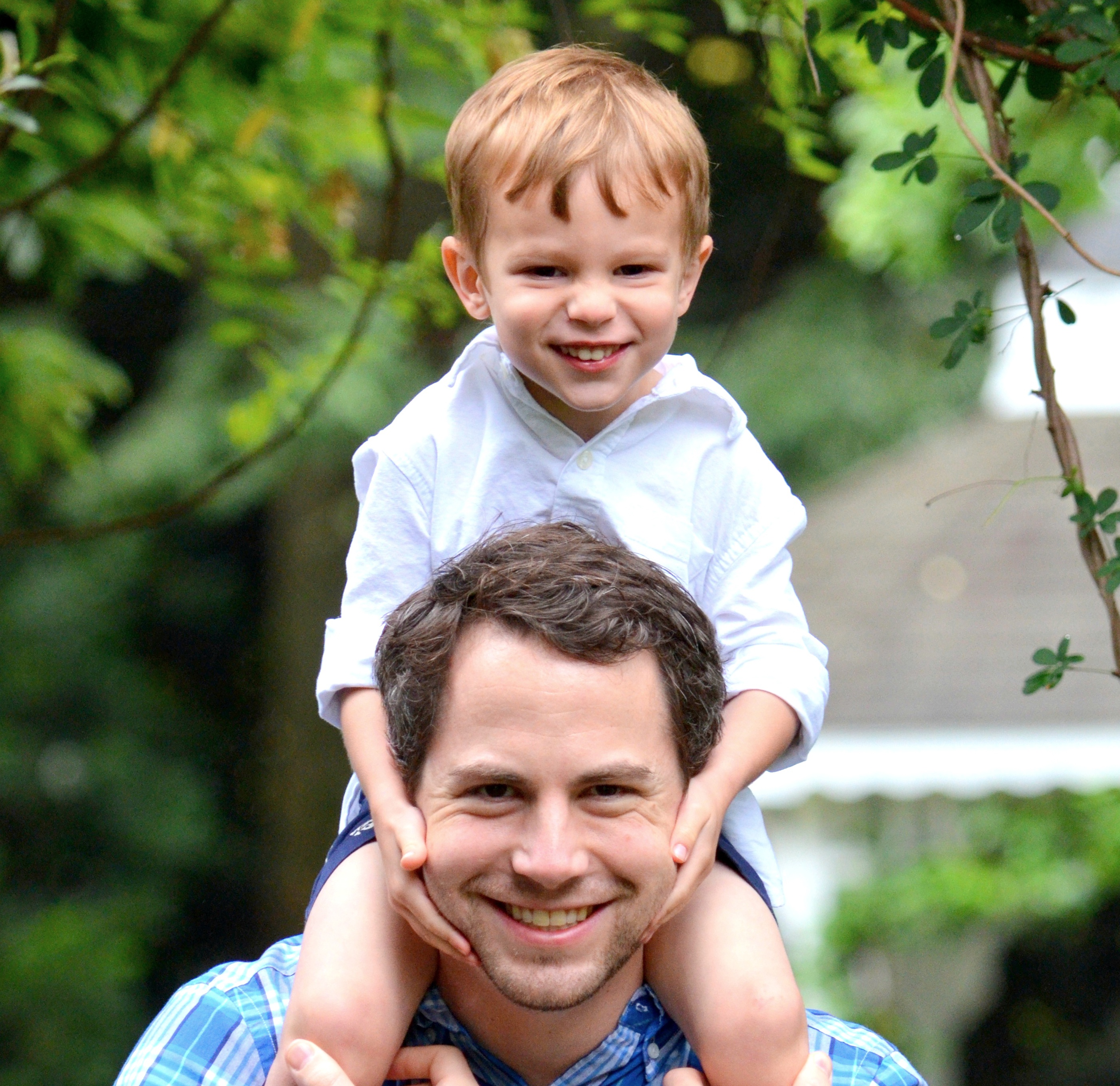It’s the fall of 2010. A recent graduate from Babson's One-Year MBA program, I moved to the Triangle area of North Carolina to be closer to my wife’s family while we looked to start one of our own. I was about to embark on my startup journey.
My first chapter had me working for Bandwidth.com as the initial finance hire for their wholesale voice business. It was a remarkable experience that helped ease me into the startup community.
Bandwidth.com was a fast-growing startup, looking to shake up the world of telecom (📞industry experience, check!). Comprised of two business units with a shared accounting and billing function, I was able to focus on more traditional FP&A responsibilities (double check for focused experience). Finally, the real dealmaker: a family-friendly culture. 🙌

One thing living in The South quickly taught me (after spending the previous 10 years up North) is that it’s possible to strike that work-life balance many talk about, but few achieve. The ability to afford a house, spend time with family, and build relationships have become invaluable parts of my life. Those benefits shouldn't come at the cost of having a job that you love.
Hello, open source
After a roller coaster four years at Bandwidth.com—10x growth, various product initiatives, and culminating with the launch of our Big Idea initiative—I was eager to get back to my entrepreneurial roots. I wanted to help build something new and unproven. That was when I found Ansible.
At the time, Ansible was a budding open source startup in the town next door (Durham). Having never interacted with open source, the concept of growing an active community and giving your core product away for free was foreign to me. How would the company survive? This just didn't make sense. But somehow, this team had found a way to balance free with a paid business model.
There was a thriving community of developers who were so passionate about the project that they would donate their time to improving the open source code, freeing our team to (i) manage the commit process and (ii) build Tower, the paid dashboard tool for managing Ansible in their IT infrastructure.
Fast-forward about a year. Ansible was acquired by Red Hat, and the emotions were bittersweet. I was proud of what I’d helped build and thankful for the strong relationships I had formed, but I was sad to be leaving it behind.
During my time with Ansible I acquired a fondness for software in general and open source software in particular. The core philosophy of open source resonated with me on a very deep, personal level.
I have a closely held belief in the need to give back to the community and those around me, but prior to joining Ansible, I struggled to see that reflected in my work. Until this experience, I hadn’t found a company whose business model embodied a “pay it forward” mentality.
Let’s put a pin in this for now, we’ll come back to it in a bit.
The ideal work environment
So there I was, working myself out of a job at Ansible, which on one side was a great thing. But on the other it meant I needed to find something new. The next three months were a blessing, one that I wouldn’t fully appreciate until I sat down to write this post. This break gave me the opportunity to really think about what I wanted to do next.
I wasn’t sure where I would end up, but I knew two truths that had to be part of any future employer:
- Work-life harmony must be in the DNA. I am a passionate person and nothing gets me going more than doing good work. At the same time, my family is my first priority. In order to keep both in balance, I need to be surrounded by others who live the work-life harmony balance (to keep me in check and who I can keep in check) so we can sustain the marathon that is building a sustainable business.
- There needs to be a regular supply of opportunities for growth and learning. I’ve come to know myself quite well over the years and one thing has remained true. As soon as my job feels repetitive, I get antsy. Therefore, I always want to be in a place where I can challenge myself.
I have spent the past couple of years trying to find that perfect work fit. I tried working remotely for a startup out West for a year. I thought that remote work would help with #1 above, but pretty quickly felt limited when it came to #2. When the company culture doesn’t embody a remote-first strategy, it’s easy to feel disconnected from the rest of the team.
Then, I tried moving my young family back to New York City, where my wife and I met many years ago, but that didn’t work either. I managed to achieve #2 at the cost of #1.
I was stuck. 😣
Finding Tidelift
That's where good fortune stepped in.... I was catching up with my old friend, Chris Grams, whose firm (New Kind) had guided us through a branding transition at Ansible. I went on to describe how, on one hand, NYC had been really great in bits and pieces, but I wasn’t totally happy. I missed ‘the Triangle’ back in NC and was still looking for that work-life harmony combined with the desire to be more than “the finance person.” He began to tell me about this great company he’d joined.

It had to be a great place for him to have left New Kind. He told me about the remote-first mindset reinforced by the fact that two of the four co-founders worked remotely themselves. He introduced me to a few more members of the team, and as I got to know them better, I saw firsthand how remote can, in fact, work, so long as the company is intentional about a distributed team strategy.
From the little things like their daily “watercooler” video chat, to the way that everyone joins video calls from their own computers—even when they are in the same office—if a single meeting attendee is remote. To their daily #standup updates in Slack about what everyone is working on that day. And finally the #pets-and-kids Slack channel. As a family man, that last one warmed my heart and secretly sold me on Tidelift—yes I consider both our son and English Bulldog to be our kids (yes, that’s my baby in her stroller… bring on the judgement).

Anyhow, that was it. My wife and I packed up the family and moved back to downtown Raleigh where I could return to riding my bike to work, walking to nearby coffee shops, and enjoying the Southern life I’ve come to love. 🚴☕️
My advice: write down what you really want from your work. For me this was (i) meaningful work at an interesting, high-growth startup, (ii) a distributed culture where people can be successful from anywhere, and (iii) the ability to live work-life harmony. I’m thrilled to have found all of these at Tidelift (psst, we’re hiring).
As a side note, if I never see another roll of packing tape or moving box it won’t be soon enough.


 50 Milk St, 16th Floor, Boston, MA 02109
50 Milk St, 16th Floor, Boston, MA 02109